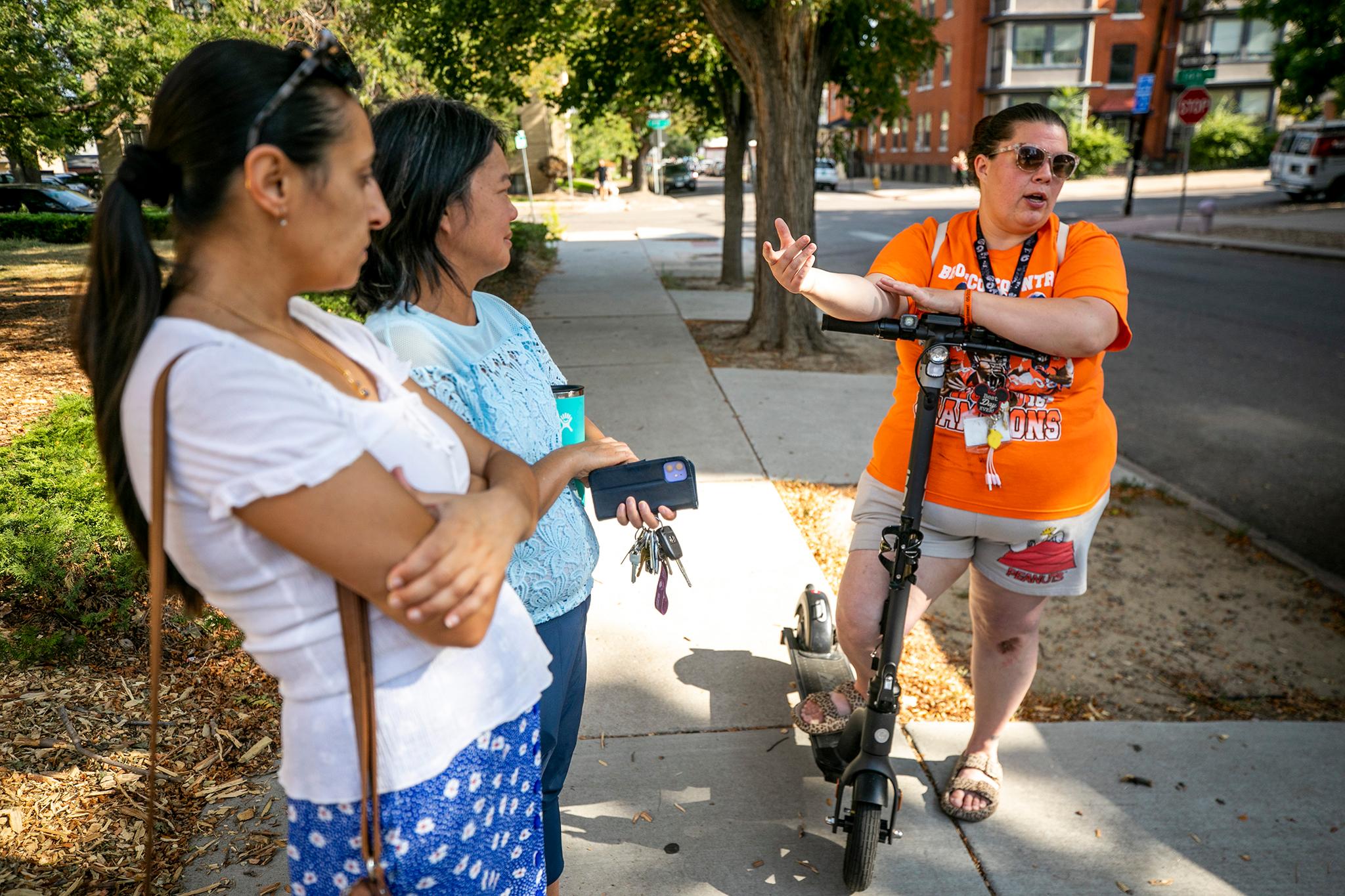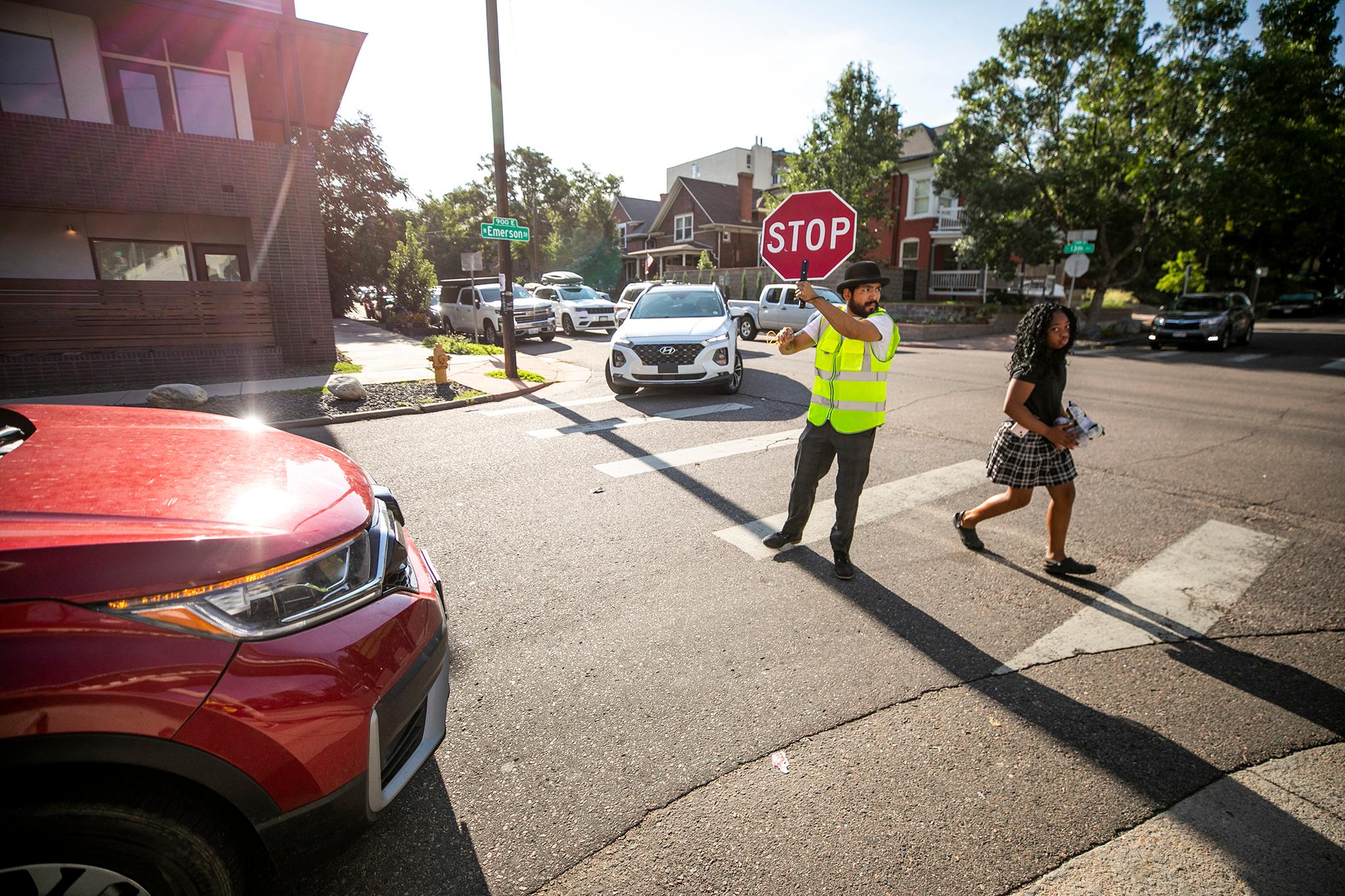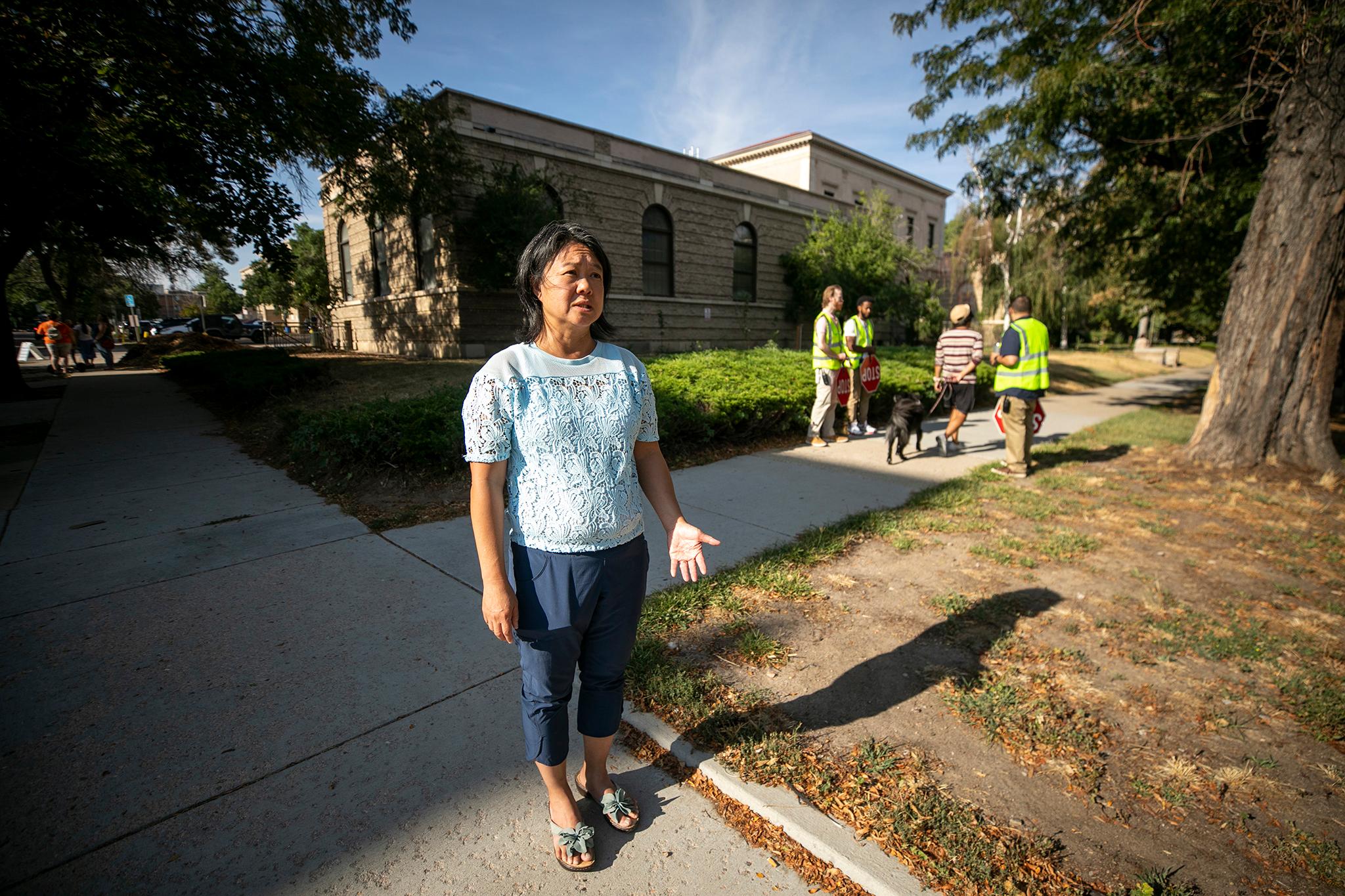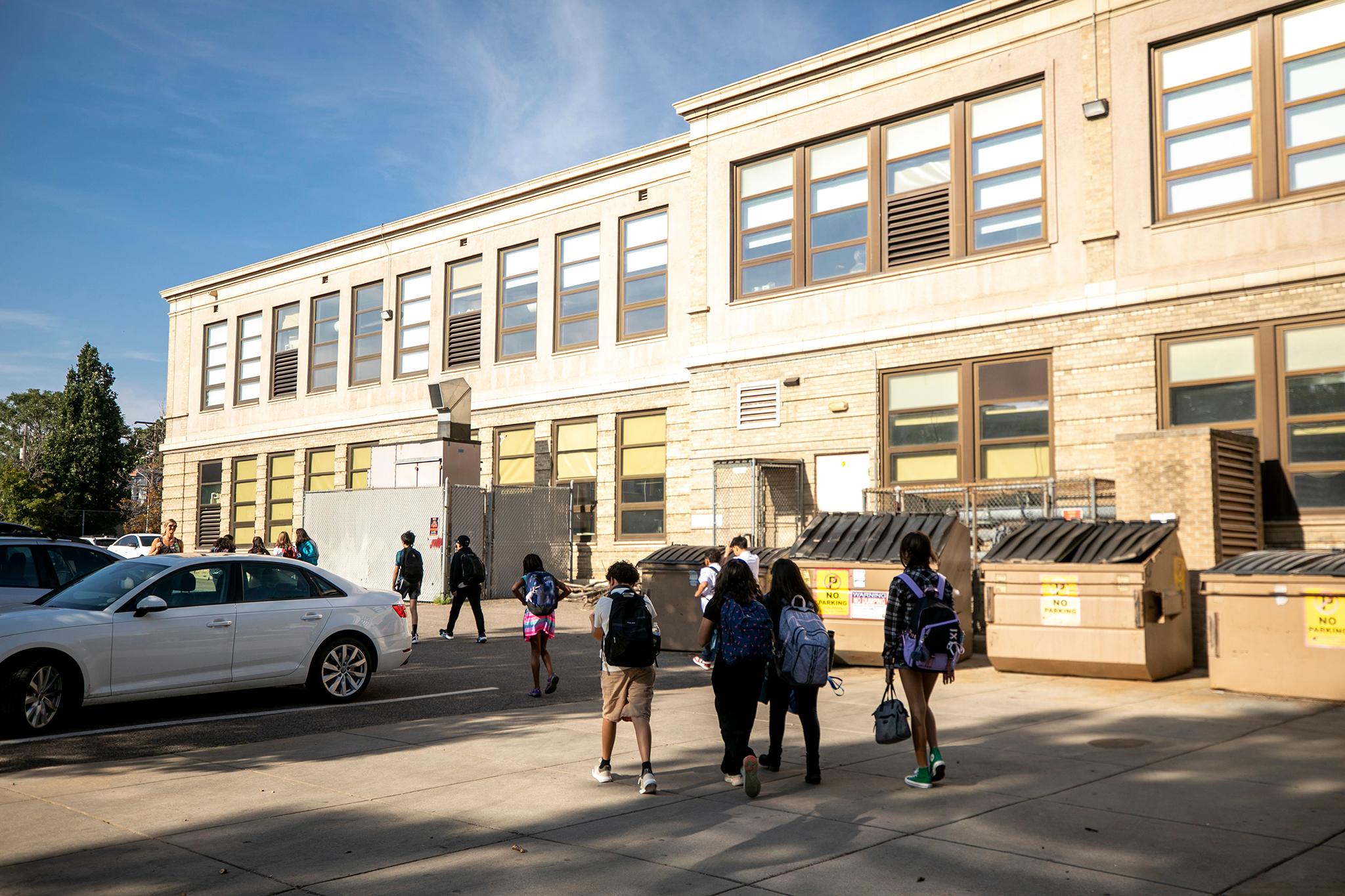On the first day of school Monday, Dallas Rael spent 45 minutes traveling from her home in West Colfax to Morey Middle School in Capitol Hill to get her sixth grader to class on time. They took two RTD buses and an electric scooter to make it to Morey, and on the way there, Rael crashed on the scooter and scraped her leg. Driving is not an option; Rael's car was towed last summer, and she could not afford to get it out of the tow yard.
In past years, Morey parents have been guaranteed school bus service. But after the Denver Public School (DPS) board voted to delay middle and high school start times to help teenagers get more sleep, the district decided to cut school bus service to six schools to make the new start times work across the board.
The school bus cuts affect a small portion of DPS schools, but for those parents, the return to class has been a challenge.
"I'm a cashier at Safeway, and there's days where I have to be to work from 2:30 to 11 [p.m.], where I can't come pick him up from school and Dad's not available," Rael said.
In a statement Thursday, the district said it is continuing bus service to schools like Morey in some neighborhoods based on the number of students who receive free and reduced lunch, and that special education students requiring transportation services will still have buses. Rael said the district told her about a school bus option, but that pickup was three miles from her house.
"District-wide, 22 out of 645 segments were cut for the 2023-2024 school year. That is a reduction of 3%," said DPS spokesperson Scott Pribble. "The decision on which services were impacted by these changes was not taken lightly. It was based on the number of students who regularly utilize each bus route and the number of riders on each route who receive free and reduced lunch."

Morey is located just off Colfax Ave., between 13th and 14th Avenues. Even without school traffic, the streets are typically crowded with fast moving cars.
During school drop-off on Tuesday, the streets were clogged with a mix of commuters and parents dropping off kids. School crossing guards dodged cars while directing traffic, alongside a handful of police officers who were also dispatched to help manage the scene.
"Since they got rid of the transportation, parents as you can see are having to drive and drop off the kids on these very small blocks of traffic. It has become a safety issue," said Lynne Ly, a parent of a sixth grader at Morey. "The question is, is this sustainable?"

Parents have also struggled to fit their work schedules around school pick-up and drop-off.
Ly told her boss she would have to start blocking off her calendar in the mornings due to the school schedule. Rael typically starts her shift at Safeway after school starts, but often finishes work after school ends. She is a single mom, and while she plans to ask her child's dad or grandmother to pick her son up, she worries about times when they will not be available.
Another parent, Janna Steele, said she quit her job as a pharmacist because she would not be able to make it to the pharmacy to open on time.
"I quit to be a chauffeur for my kid," Steele said. "My husband and I put everything we had into buying our house two, three years ago, when there was transportation and when we were promised transportation, and now our taxes were raised and our income has been cut in half. I have three kids at three different schools, and it's not compatible with having a job."

Because schools like Morey are magnet schools, students typically travel from all over the city to get to school.
Denver's magnet schools are opt-in (and in some cases test-in), meaning parents do have closer neighborhood options. But many parents at Morey said their students have special education needs or behavioral issues and need programs not offered at all schools.
"My kid has always been in magnet school, because the reason they're in a magnet school is they have a learning need that cannot be met in traditional school. My son started kindergarten at traditional school, he had behavior issues," Ly said. "His sister, she has a learning disability... and so the school here tailors to each individual kid."
Steele said she tried her neighborhood school, but that her daughter was often kicked out of class or stuck doing paper mache all day. Rael's son has an individualized education program (IEP) where he needs extra breaks during the day. Their students are also in gifted and talented programs, something not offered at all district schools.

Ly said the lack of busing this year becomes an equity issue -- parents who do not have flexibility with work, or do not own cars, could struggle to access programs at Morey or at other magnet schools across the city.
Transportation has proven to be a problem in DPS' school choice system as well, where parents can opt-in to sending their children to neighborhood schools outside their zone that might be a better fit for their kids. But if families take that route, they are similarly not guaranteed transportation, reserving that option for parents with the resources to get their kids to school on their own.
Rael, who does not have a car, is making things work for now by taking two RTD buses. But she does not feel comfortable sending her sixth grader on his own.
"He's 11 years old, he doesn't know the gist of the city bus or getting to and from school three miles from his house, he doesn't know the city very well," Rael said.
With school already underway, parents want to see buses back and traffic safety studies near their schools.
"I would like the district to do the right thing and really logistically study the traffic patterns of the schools that they are deciding not to provide busing services," Ly said. "Sometimes we make policies without understanding the impact. Now, this is the impact."
Editor's note: This article was updated with comments from DPS.












